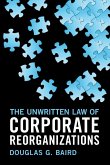"The rise of China and the rapid international expansion of major Chinese corporations such as Huawei Technologies have led to a great deal of fear and misunderstanding among Western commentators and policymakers about who controls these corporations and what their motives might be. This book argues that Chinese business corporations can be properly understood only within their ecosystems, in other words, as complex living organisms interacting dynamically with (and upon) a multilayered political, cultural, and ecological natural-human environment. Without adopting this holistic perspective and identifying the key defects of the current corporate ecosystem, the historical development and future direction of Chinese corporations will continue to be misread, leading to increased international tensions, missed opportunities to address the global environmental crisis, and continuing distortions in the world economy"--
Hinweis: Dieser Artikel kann nur an eine deutsche Lieferadresse ausgeliefert werden.
Hinweis: Dieser Artikel kann nur an eine deutsche Lieferadresse ausgeliefert werden.








